Fusing faith and action: Community Based Learning (CBL) celebrates 10 years in Ireland
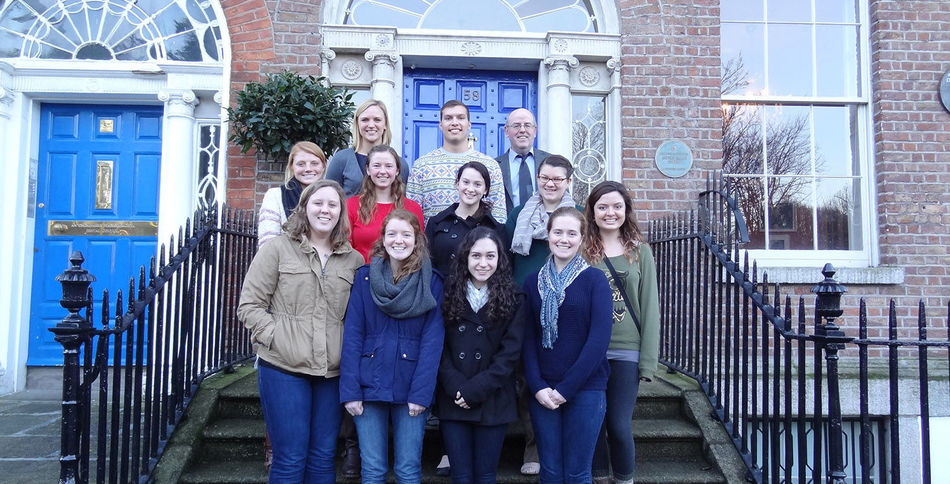 CBL orientation day, Spring 2015, where participants meet their mentors and learn a little about the site where they will volunteer for the semester.
CBL orientation day, Spring 2015, where participants meet their mentors and learn a little about the site where they will volunteer for the semester.
2019 marks ten years of collaboration between the Notre Dame Dublin Global Gateway and the Center for Social Concerns on a CBL Dublin Program. Designed as an element of the required introduction to Ireland course taught by Gateway Director Kevin Whelan, the initiative promotes student learning about contemporary social issues in Ireland through community placements across the social service sector in Dublin. Study abroad students participating in the programme complete weekly work in organizations serving refugees and asylum seekers, as well as the elderly and at-risk youth. They also participate in structured reflective sessions and complete integrative written assignments designed to link the community-based experiences with classroom topics.
More than 300 students have participated in the program, which is designed for international community-based learning at the Center for Social Concern. It also give students the opportunity to participate in local organizations that meet the needs of vulnerable Dublin residents, while further enhancing their semester abroad.
“The students have the opportunity to build relationships with a variety of Dubliners whom they would otherwise not encounter in neighbourhoods unfrequented by tourists and visitors,” says Rosie McDowell, program director.
The CBL Dublin Program encourages students to plunge into an immersed environment, inviting them to become more flexible, more empathetic, and more globally literate. It creates purposeful connections between classroom learning and local issues, contexts and concepts. An additional facet is a series called “Understanding Ireland” that hosts expert speakers who enlighten the students on relevant issues. These discussions on Irish topics such as education, Catholicism, social inclusion, politics, immigration, sustainability, the Irish language and sport complement students’ community based work and provide wider perspectives to broaden their learning.
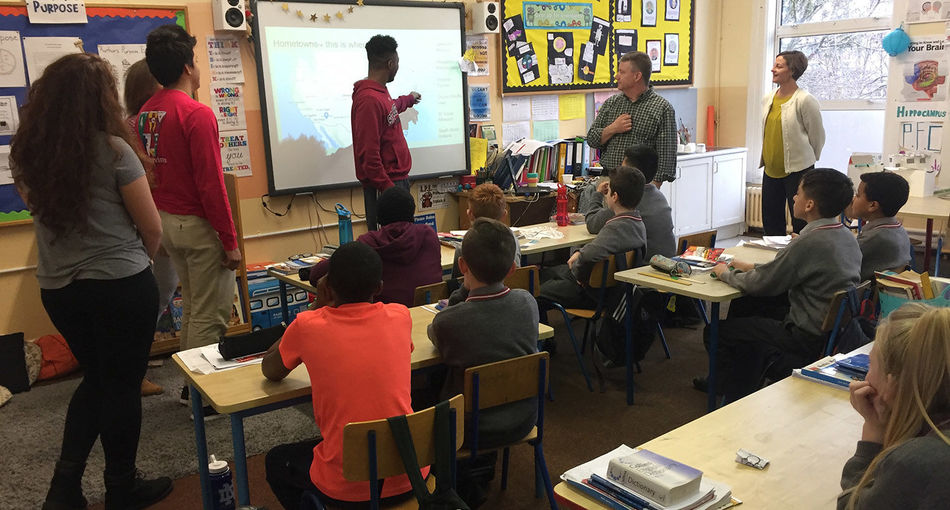 ‘Understanding Us’: Local school children learning a little about American history from our Notre Dame students.
‘Understanding Us’: Local school children learning a little about American history from our Notre Dame students.
“The Dublin Global Gateway was the first in Europe to partner with the Center for Social Concerns to integrate community-based learning about social justice issues with an already robust set of experiential learning opportunities built into the study abroad experience in Ireland”, says McDowell.
“The importance of fusing faith and action, intellect and compassion, education and service cannot be understated,” says Kevin Whelan, director of the Dublin Global Gateway.
“Through CBL, our students exercise their social responsibility as they deepen their understanding of Dublin, Ireland, and of themselves.”
The Dublin Global Gateway thrives on fostering genuine connections between Notre Dame students and the wider Irish community.
“Our success in developing an immersive experience is dependent on our relationship with our local partners who provide comprehensive insights into life in our city,” Eimear Clowry Delaney, who leads the CBL programme in Dublin. “We have already partnered with more than twenty non-profit organizations working with the elderly, school children, young adults, refugees and asylum seekers, sports groups, and local community development groups.”
Over the past ten years, students have said that they enjoy working alongside staff and volunteers in Dublin agencies have expanded their knowledge on several levels. They encounter and get to know Dublin residents that they would not have otherwise met; this expands and personalizes their understanding of the Irish culture.
“As students venture into their placements in neighbourhoods outside the university and tourist settings, they gain an appreciation for the complexity of Dublin as a dynamic city with a diverse, evolving population”, says McDowell.
“Students are able to engage with social issues and contribute to their host community in ways that make them feel like they belong. In this way, they continue to be formed as scholars who are informed by the principle of human dignity and the practice of solidarity rooted in Catholic social tradition. Our expectation is that they will carry this sensibility forward wherever they go in the world."
Meet CBL graduates
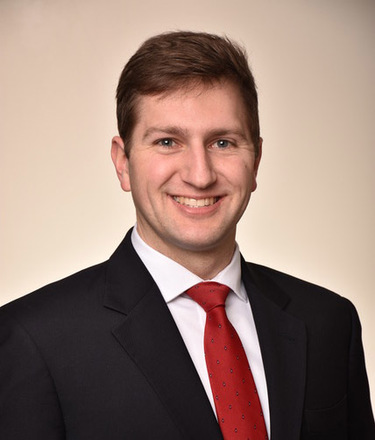
Andrew Kidd
Andrew is an Ohio native, participated in the Dublin program in Spring 2010, and graduated from Notre Dame in 2011 with a degree in economics and mathematics. He received his doctorate in economics from the University of Wisconsin-Madison in 2016. Andrew married a fellow Dublin program alum, Molly (Oelerich), in 2015 and they have two children. They currently live in the Columbus, Ohio area and enjoy making it back to Our Lady’s University and Ireland as often as they can.
In Spring 2010, Andrew volunteered at the Life Centre run by the Christian Brothers, a centre that supported young people struggling in mainstream school and who joined the Life Centre to finish their education on a more individualized schedule.
“Working with these kids meant changing my own perception of what an education can be and how it can lead to success,” says Andrew. "Even if you aren’t in a traditional school, there is a path for you that fits your talents best."
Andrew spent his time at the Life Centre connecting with local youngsters, learning about their hopes and struggles.
“CBL definitely made me more aware of those in need, especially after I returned home to the US,” he says. "It encouraged my focus in studies and research on how to help others achieve their form of success and become the best they can be."
Andrew now works in Columbus, Ohio for a state think tank (The Buckeye Institute) that is actively engaged in policy discussions at the state-level on a variety of topics. One of those areas is education reform through the Fordham Institute and American Enterprise Institute called Emerging Education Policy Scholars, where he seeks to bring about real change in the education realm.
“CBL is very important in connecting students not only with the culture of where their study abroad may take them, but also with people and communities who represent what normal life is like in those communities,” he says.
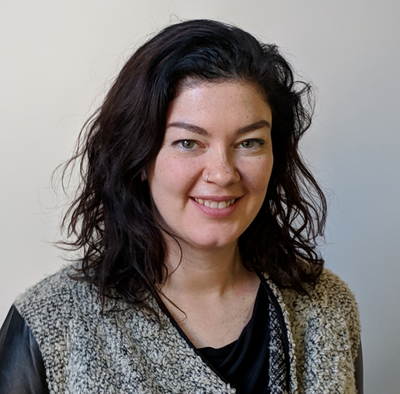
Beth Neiman
Beth is a 2010 graduate of the College of Arts and Letters and a former resident of Lyons Hall. Beth studied abroad in Dublin in Spring 2009 and was a member of the first cohort to participate in CBL in Dublin. Originally from South Bend, her nonprofit and humanitarian work has taken her from Chicago to Thailand to France, and then back to Chicago, where she completed her master’s degree at the University of Chicago’s School of Social Service Administration. She now works for an educational non-profit within one of Chicago’s public high schools, providing individual and group support to students from high-trauma communities.
Beth, a student in the first cohort of students who participated in the program, tutored youth who were seeking asylum from Sudan, Afghanistan and China.
“I listened to the young people’s stories of fleeing sectarian violence, environmental crises, and poverty to navigate complicated systems of immigration, education, and language," she says. "I learned about how global economic trends played out in local industries, and what this meant for people who had hoped to find work, or homes, or stability."
She stayed in Dublin through the summer as an Irish intern at the Department of Justice, Equality, and Law Reform. That prompted her to research education policies in Ireland and the European Union, to understand how communities were addressing the needs of these young people and the ways in which migration in Ireland and the EU was inherently linked to global markets and political agendas.
After completing a masters degree in social service administration, Beth now works at a high school, providing individualized counseling and programmatic interventions to students who have all been directly impacted by gang violence, poverty, and systemic racism.
Beth has no doubt that the program has had a lasting impact for her.
“I see the effects of my time in Ireland in my life on a daily basis: through the skills I developed, to the perspectives I gained, through the values I sought as I moved through my career, which took me from overseeing youth programming in Chicago to teaching economics in a bamboo hut in a refugee camp in Thailand studying urban housing policy in Hong Kong – I truly believe my six months in Ireland, and the guidance and education I gained, was a catalyst for my career,” she comments.
“I continue to seek out professional spaces where listening, and reflection, and diverse perspectives are valued assets, and I work to instill these values in my direct service and programmatic work. Whether training volunteers to sort donations or coaching young people through writing personal statements, I work hard to create space for all voices, to welcome diverse perspectives, and to challenge simple narratives.”
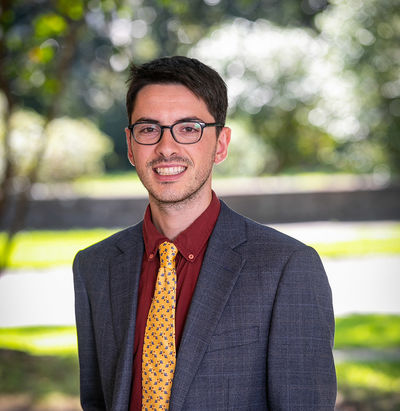
Patrick Schmitz
He spent his 2012-2013 academic year at Trinity College Dublin, where he also worked with the Aisling Project in Ballymun on the north side of Dubin. Patrick’s experience tutoring and working with students during his CBL program led him to teach high school with Notre Dame’s Alliance for Catholic Education program in rural Louisiana. Currently in Pensacola, Florida, Patrick works with 8th graders, teaching a humanities course with a service learning focus. He says being challenged in his placement led to important learning that still informs his current work as a middle school teacher.
“Honestly, I was so awkward and mechanical working with students before CBL,” says Patrick. “Now, I am working as a middle school teacher and loving it.”
Patrick says his time working with youth on the north side gave him much to talk about with his Irish friends who themselves didn’t know that neighborhood very well.
“Each week, my Irish friends would be concerned that I would travel to Ballymun," he says. “They’d make comments about never driving there at night or locking their car doors. It shattered me to think that these young children were seen in a way that did not represent them. It saddened me to think that many of them did not even know what was being said about them only a few miles away. A mirror was held up to myself – how often did I judge a group or area based on a few people or other qualifier? And how often was I wrong?”
This experience has influenced his own work teaching an interdisciplinary humanities course in his middle school. The class focuses on major moral and social issues that are discussed through the books they read and includes a service component as well.
“When we discuss the cycle of poverty, the students volunteer by making sandwiches and sorting food for the local food bank,” he says. "Students also partake in an activity that requires them to use one of the food banks weekly donation bags to plan (hopefully) healthy meals for a week."
At the end of the day, the students have walked a day in the shoes of the workers and the recipients of the food bank. They also see the efforts being done, and more importantly what they as teenagers can do, he says.
In this way, Patrick exposes his own students to the insights and personal growth that come from community-based learning.
The Dublin Global Gateway is committed to expanding the frame of intellectual, spiritual, social, and emotional reference of our participants. Learn more about Community-Based Learning (CBL) and why it’s at the heart of our educational mission.
Originally published by at dublin.nd.edu on August 06, 2019.